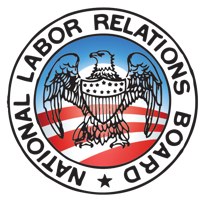 This week, the National Labor Relations Board (NLRB) — now legally constituted and still very union-friendly — reaffirmed its “quickie elections” rule. The original rule was thrown out by the D.C. Circuit Court because the Board lacked a proper quorum to make rules.
This week, the National Labor Relations Board (NLRB) — now legally constituted and still very union-friendly — reaffirmed its “quickie elections” rule. The original rule was thrown out by the D.C. Circuit Court because the Board lacked a proper quorum to make rules.
After the Senate confirmed a full slate of members to the NLRB in July, the NLRB could get back to gutting legal precedent on behalf of the unions that backed the President’s campaign so lavishly. And first up is “quickie elections,” a favor to unions which may keep opponents of unionization from telling their side of the story before a union vote.
Even worse, the latest rulemaking continues to permit unions to demand employees’ full contact information, including their home addresses. The Employee Rights Act (ERA), a proposed federal labor reform, would allow employees to “opt out” of giving unions their contacts and addresses. A recent national poll found that 82 percent of union household members favored this provision.
Meanwhile, a multi-part feature in The Washington Examiner exposes another Big Labor Favor: Public-sector unions use “official time” — taxpayer funding for union work by government employees — to build their political and membership muscle. As Florida Republican Rep. Dennis Ross notes, “We are paying them on official time using official resources to lobby us as officials so they can get what they think is due them from this government. It’s kind of self-consuming. You are using taxpayer dollars to lobby for more dollars.”
At the federal level, Mark Flatten reports that taxpayers spend roughly $156 million on “official time” each year. In total, 708 federal employees spend at least half their working time doing union work rather than their government jobs. States have begun already to rein in the similar practice of granting union staff “release time”: Will the federal government continue to lag behind?



